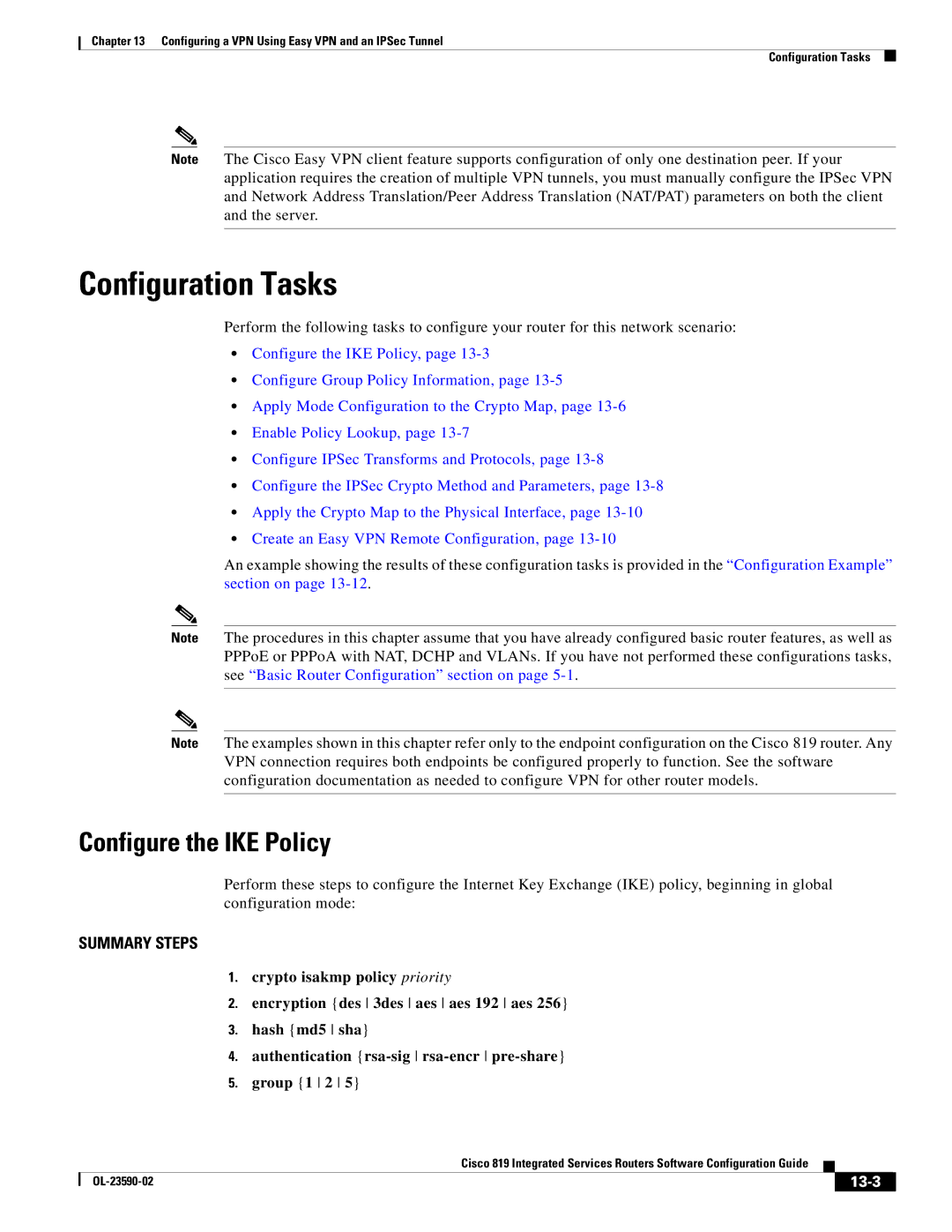
Chapter 13 Configuring a VPN Using Easy VPN and an IPSec Tunnel
Configuration Tasks
Note The Cisco Easy VPN client feature supports configuration of only one destination peer. If your application requires the creation of multiple VPN tunnels, you must manually configure the IPSec VPN and Network Address Translation/Peer Address Translation (NAT/PAT) parameters on both the client and the server.
Configuration Tasks
Perform the following tasks to configure your router for this network scenario:
•Configure the IKE Policy, page
•Configure Group Policy Information, page
•Apply Mode Configuration to the Crypto Map, page
•Enable Policy Lookup, page
•Configure IPSec Transforms and Protocols, page
•Configure the IPSec Crypto Method and Parameters, page
•Apply the Crypto Map to the Physical Interface, page
•Create an Easy VPN Remote Configuration, page
An example showing the results of these configuration tasks is provided in the “Configuration Example” section on page
Note The procedures in this chapter assume that you have already configured basic router features, as well as PPPoE or PPPoA with NAT, DCHP and VLANs. If you have not performed these configurations tasks, see “Basic Router Configuration” section on page
Note The examples shown in this chapter refer only to the endpoint configuration on the Cisco 819 router. Any VPN connection requires both endpoints be configured properly to function. See the software configuration documentation as needed to configure VPN for other router models.
Configure the IKE Policy
Perform these steps to configure the Internet Key Exchange (IKE) policy, beginning in global configuration mode:
SUMMARY STEPS
1.crypto isakmp policy priority
2.encryption {des 3des aes aes 192 aes 256}
3.hash {md5 sha}
4.authentication
5.group {1 2 5}
|
| Cisco 819 Integrated Services Routers Software Configuration Guide |
|
| |
|
|
| |||
|
|
|
|
| |
|
|
|
| ||
